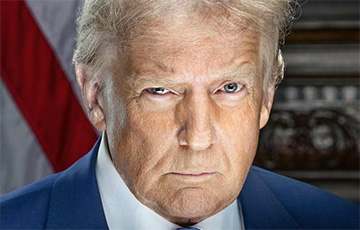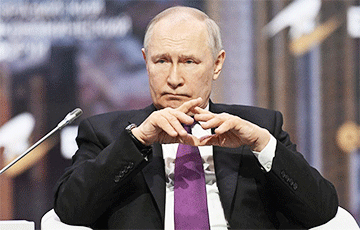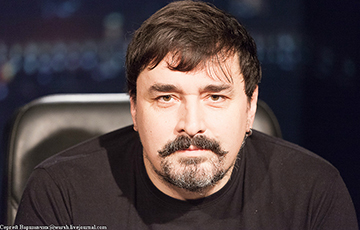The Times: Trump Is Preparing A Big Blockade For Putin
2- 11.07.2025, 22:19
- 7,490

Tariffs of up to 500% and sanctions to Moscow's allies.
US President Donald Trump, who has previously been slow to ramp up pressure on Moscow, has signaled for the first time that he may support the toughest sanctions against the Russian economy in years.
The main target is oil exports, which remain a key source of funding for Russia's war on Ukraine. This is according to The Times.
The new initiative being drafted in Congress would impose 500 percent tariffs on oil and uranium imports from Russia. Moreover, those countries that continue to trade with the Kremlin - China, India and Turkey - would also be hit. They are the ones who today use the so-called "shadow fleet" - tankers without flag or oversight - to secretly buy Russian oil.
The bill's author, Republican Senator Lindsey Graham, said the president had given the go-ahead for the bill. "Trump has told me it's time to act and we're going to start moving forward," he reported. He said the bill should come up for a vote in the Senate by the end of the month.
With the Kremlin's stubborn refusals to stop shelling civilian targets in Ukraine and to negotiate, the US president is increasingly losing patience. In a meeting with senior officials on Tuesday, Trump openly criticized Vladimir Putin for the first time. "We have to deal with a lot of lies from Putin, if you want to know the truth. He's always smiling, but it doesn't mean anything," he said.
The White House previously believed that Russia was actually interested in ending the conflict. Now, such confidence appears to be fading. This, according to experts, is what has triggered a serious discussion of tightening sanctions policy.
The question remains, however, whether Trump himself is ready to accept the consequences of such tough measures. Economists warn that 500 percent tariffs would effectively mean a global embargo on Russian oil and could lead to a sharp rise in fuel prices, possibly above $100 a barrel.
"This is too harsh a measure, and I don't see Trump openly taking such a step," says analyst Maximilian Hess of the Foreign Policy Research Institute. Hess emphasizes that even the threat of secondary sanctions can be very effective.
He also criticizes the 18th EU sanctions package blocked by Hungary and Slovakia for its softness and indecisiveness. In particular, the EU planned to lower the price ceiling on Russian oil from 60 to 45 dollars, which, according to the analyst, is not enough. Instead, he said, it should tighten enforcement of measures already in place: denying access to EU financial and insurance services to those foreign ports that do not inspect ships to see if they are circumventing sanctions. "Now that would really work," Hess summarized.
So the growing intolerance in Washington for the Kremlin's policies could open a window of opportunity for Ukraine. And if Congress and the White House agree, Moscow could face the most serious economic blockade since a full-scale war began.











